6 Best Bitcoin Wallets 2026 | Open in < 5 Minutes
Are you looking for a highly secure Bitcoin wallet or easily accessible storage that supports your Bitcoin day to day transactions?
The answer to this ultimately affects your choice of a Bitcoin wallet. 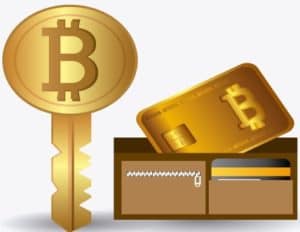
By now you probably understand that your search and choice of a crypto wallet is as important as your choice of the crypto exchange platform for your crypto transactions.
But what is a Bitcoin wallet and how can you tell the difference between an effective and a bogus wallet?
More importantly, what are the different types of Bitcoin wallets and what would you consider the best choice for either a Bitcoin trader or investor?
Here are the answers to these questions and short reviews of the top six Bitcoin wallets currently available.
-
-
Multicurrency Wallets: While most pioneer wallets were inspired by the need to keep Bitcoins safe, advancements in the crypto industry and introduction of new coins have made them multifunctional. Most have thus been tweaked to also store both Bitcoins and some of the most popular digital currencies.
What is a Bitcoin wallet?
A Bitcoin wallet is to your Bitcoin assets what a bank safe deposit account is to your cash.
It is a hardware device, software or mobile app specially designed to keep your Bitcoin assets locked safely away from the numerous cyber threats facing the crypto industry.
They only differ from the traditional bank safe deposit account in the sense that while the safe stores your actual cash, a Bitcoin wallet stores the private keys used to access your Bitcoin – the proof that you are the real owner of the Bitcoins. The keys, in this case, refer to a complex alphanumeric code generated after every Bitcoin transaction.
What are the different types of Bitcoin wallets?
Desktop and mobile walletsHardware walletsOnline walletsPaper walletsIf you are using a PC or a mobile device, you can download the software and apps specially designed to run on the computer or mobile device.
Most of these run in the background and rarely connect to the internet, effectively reducing your Bitcoin assets exposure to cyber threats.
They too are considered ‘Hot Wallets’ and are dogged by such threats as viruses and malware that could wipe your PC or mobile data.
A hardware wallet is a device, most look like typical USBs, that keeps your Bitcoin private keys safe and offline.
These are considered ‘Cold Storages’ and the safest ways of keeping your coins due to the fact that they cannot be accessed over the internet.
To access the keys stored herein, you will need to connect the hardware wallet to a computer using a USB cable.
Online wallets refer to Bitcoin storages maintained by third parties and ones that are easily accessible over the internet.
The fact that they are stored in the high-risk online environment earns them the name ‘Hot Wallets’.
These are considered less secure and you will want to conduct thorough research on their developers before deciding on one that guarantees the safety of your coins.
You can also print the Bitcoin access codes (private keys) on a piece of paper that you can then store in such high-security environments as a bank safe deposit account.
Paper wallets rank highly on the list of the safest Bitcoin storages.
Why do you need a Bitcoin wallet?
- Keep your Bitcoins safe:
Whether you are an investor looking to hold onto your coins for some time or a regular trader, you need an impenetrable safe keep for your Bitcoins in between buying and selling.
Bitcoin wallets both hot and cold make this possible by providing a safe haven for your Bitcoins.
- Add an extra layer of security through a pin code:
The level of coding and data encryption involved in designing Bitcoin wallets plus the fact that most store your private keys offline are enough to keep hackers at bay. Most will nonetheless add an extra security layer in the form of a pin code or login credentials used to access the wallet.
- Some will also host additional crypto coins:
At some point in your crypto trading career, you will want to diversify your crypto investments and have more than just Bitcoins in your portfolio. And the fact that most of the Bitcoin wallets can hold more than just Bitcoin private keys makes this transition as seamless as possible.
What are the Dos and the Don’t’s of choosing and investing in a Bitcoin wallet?
The Do’s
- Always go for the wallet with the highest form of security, like pin code
- Maintain a backup for your Bitcoin wallet offline and offsite
- Buy a wallet from a genuine seller and directly from their home or sales page not through a third party website
- Verify the legitimacy and integrity of a Bitcoin wallet with the provider before using it
- Maintain the highest form of security on the P.C or mobile used for Bitcoin trade
The Dont’s
- Don’t keep all your Bitcoin assets in one wallet, even when using a hardware wallet
- Don’t trust exchanges and crypto trading sites with controversial pasts like recent hacks or employee misconduct
- Don’t access your Bitcoin wallet over public networks
Criteria used to identify the best Bitcoin wallets
- Security guarantee
- Wallet development and support team
- Wallet security and backup features
- User-friendliness
- Reputation
- Customer support
- Ease of use
- Customer satisfaction score
Best Bitcoin wallets for 2026
1. Trezor T hardware wallet - Best for backed-up wallet data
Trezor was the first-ever wallet developed to secure Bitcoins offline.
It is thus a pioneer in the field with most other hardware wallets borrowing heavily from its innovative security features.
It is a small and portable device that you connect to your computer using a USB cable. Classified among some of the most effective cold storage wallets, it is most suited for traders and investors looking to store large volumes of Bitcoin assets.
Key features:
Trezor hardware wallet hosts such secondary security features like the four-digit pin used to secure the device data. It also has an OLED screen display used to check the contents and verify wallet addresses when transferring coins. The device contents can also be backed with a 24-word seed that is generated during set up.
Our Rating
- Limited access making it virtually immune to hacking
- Supports such other crypto coins as Ethereum, Ethereum Classic, Litecoin, Dash, and Bitcoin Cash
- The plug and play mode makes it easy to use
- A rather complicated setup process
- The Trezor T hardware wallet currently retails at $185 which many consider unaffordable
2. Ledger Nano S wallet - Best hardware wallet
Ledger Nano is considered the most secure Bitcoin hardware wallet available today.
Launched over five years ago, the cold storage wallet has gradually morphed into what most industry experts consider the gold standard for the cryptocurrency wallet security.
The fact that the USB-like but slick-looking device stores your Bitcoin private keys safely offline makes it the perfect choice for traders and investors who value safety over convenience.
Acquiring the device will however set you back $70.
Key features:
Ledger Nano S has an OLED screen display that can be used to check the Bitcoin balances and confirm crypto addresses before sending coins. Secondary security features for the device include a four-digit pin used to access its contents. And if you input the wrong pin for three consecutive times that deletes any data contained therein.
Our Rating
- Pin guarantees added security
- Relatively affordable compared to most other hardware wallets
- Trezor was the first-ever hardware wallet designed to secure Bitcoin private keys offline.
- Complicated setup process
3. Keep Key Bitcoin wallet - Best for ease of use and address verification
KeepKey, yet another Bitcoin hardware wallet seeks to leverage the shortcoming of the industry pioneers Trezor and Ledger-Nano devices by providing an easier to use the wallet.
It, however, comes available in the form of a USB device that connects to your computer during transaction processing via a USB cable.
It is big on security and convenience and thus perfectly suited for investors and traders looking for both highly secure and easy to use the wallet.
Key features:
KeepKey features include a larger OLED screen for the ease of address verification when sending crypto assets. Additionally, while the rest of the wallets call for complicated setup and only compatible with popular operating systems like Mac and Windows, KeepKey is also compatible with Linux and Android OS. Secondary security here is guaranteed by a four-digit passcode required to read the device.
Our Rating
- Strong emphasis on both security and convenience
- Slick design that makes it easy to use
- Fairly priced at $79
- Deposits are only achieved through such third party associates as Electrum or Multibit
- Setup must be completed in one sitting as it does not support you to save progress
4. Atomic wallet - Best desktop wallet
Atomic ranks highly on the list of the most popular and safe Bitcoin desktop wallets currently available.
It takes pride in offering some of the most convenient storage and safety features and thus best suited for regular Bitcoin traders.
Key features:
One of the Atomic wallet's most unique features is the Atomic swaps that make it possible to swap Bitcoin for Litecoin or Quantum coins and vice versa seamlessly within the desktop app.
The setup process is also quite straightforward making the wallet quite appealing to both beginner and experienced Bitcoin traders.
Downloading and using the wallet is also largely free and you will only be charged for such services like buying cryptocurrencies with a credit card that attracts 7% commission charge and $10 minimum charge.
Our Rating
- Straightforward set up and use making it beginner-friendly
- Slickly designed and user-friendly interface
- Stores all your crypto and wallet data on your desktop and doesn’t share with third parties
- Doesn’t have a compatible hardware device
- Susceptible to hacks and computer malware or viruses
5. Coinbase - Best insured online wallet
You probably have heard about Coinbase, one of the leading crypto exchange sites in the world. But did you know that they also offer Bitcoin storage services?
The company takes pride in maintaining one of the largest and most secure cryptocurrency cold storage servers catering for individuals without access to a hardware wallet and others that are unable to effectively protect their Bitcoin and other crypto assets.
Key features:
The Coinbase web wallet is available to Bitcoin investors and traders from over 32 countries. The web wallet's most unique traits include its ease of use and accessibility features. Additionally, the exchange maintains a highly secure Coinbase Vault that guarantees the safety of the coins stored through offline storage, delayed withdrawals, and multi-signature coin access.
Our Rating
- Such features as multi-signature configuration and delayed withdrawals give you control over the Bitcoin assets stored here
- In addition to Bitcoin, Coinbase vault supports Ethereum, Litecoin and Bitcoin cCash
- Has the backing of a highly reputable crypto exchange company
- Imposes a 1.49% fee on coin base wallet withdrawals
- You are advised not to save huge Bitcoin deposits here due to the huge risks involved
6. Mycelium - Best mobile wallet
Mycelium is arguably one of the most popular as well as the most revered mobile crypto wallet.
It is available for both Android and iOS versions and hosted on an open-sourced program making it possible for developers to consistently come up with highly innovative features that make it appealing to most Bitcoin holders that need access to their assets while on the go.
Features:
Mycelium is a hierarchical deterministic wallet.
This implies that it generates new private keys and addresses for every transaction, effectively making it one of the most secure Bitcoin wallets.
Additionally, it uses the BitID authentication protocol that makes it possible to create a backup for offline and hardware wallets, further solidifying its security.
Our Rating
- Highly secure with the option of data backup
- Hosted on the open-source network and is thus being updated and its features upgraded regularly
- Convenient as it is accessible on the go
- No multisig authentication function
- New users may consider its user interface quite complicated
How do you choose a BTC wallet for your Bitcoin and other crypto-assets?
- Understand why you need one:
The chase for the best wallet for your Bitcoins should start with a self-evaluation of the reasons why you need a Bitcoin wallet. For instance, are you an investor or a trader? Ideally, investors looking to hold onto a coin for a longer time will prefer security over convenience while traders are more drawn to the easier to use and more convenient wallets.
- Consider its security and safety:
The last thing you need is investing and storing your Bitcoins in a vulnerable wallet that is susceptible to hacks and other risks that threaten your crypto investments. Vet the security and safety features of your preferred
Bitcoin wallet by going through their code audit reports and other security analysis carried out by industry leaders. Even more importantly, consider maintaining backups and breaking your investment and saving it in different wallets.
- Consider its reputation:
There have been numerous cases of reported misappropriation of Bitcoins stored with crypto exchanges. Some have even been lost to hackers. Similarly, there have been reported cases of distribution of compromised hardware wallets where hackers create and distribute devices whose seed word they have already copied.
We suggest you only use the very best bitcoin exchanges!
Mobile and wallets aren’t safe either as they have in the recent past been raked with cases of hacks or data wipes. It is, therefore, imperative that you understand the reputation of your preferred wallet with a keen interest in recent massive data compromises and how their developers have attempted to prevent the recurrence of these threats.
- Consider their ease of use:
The easier it is to interact with your Bitcoin wallet the easier it is to detect any anomalies and smoke out potential threats before they wreck your crypto investments. You will, therefore, want to settle with an easy to use Bitcoin wallet. Checking the ease of use tests should start with the wallet’s set up process.
- Ask around
Aren’t sure of the best wallet for your Bitcoins or how to test the authenticity of your preferred wallet? Consider asking around on the different online forums. Reddit, BitcoinTalk, and a host of telegram channels and groups are often handy when it comes to gaining valuable tips on how to identify, acquire, and test the authenticity of the different hardware and software-based wallets.
Bottom line
There is a ton of Bitcoin wallets currently available today, and each brings along a unique set of features.
But your individual definition and choice of the best Bitcoin wallet are for the large part influenced by the question of why you need for the cryptocurrency.
Going through this review, you will realize that each of the Bitcoin wallets listed here is either biased towards safety and security or ease of access and convenience. It is therefore up to you to decide whether you are looking for a wallet that guarantees security and safety or convenience.
Glossary of Cryptocurrency Terms
FAQs
What is a Bitcoin wallet?
A Bitcoin wallet is a safe deposit in the form of a hardware device or a PC/mobile app that helps keep the private keys used to access your Bitcoin assets secure. You have the option of choosing between an online wallet or a hardware device wallet.
Must I have a Bitcoin wallet to trade in Bitcoins?
Not really, while it is advisable that you maintain a personal high-security wallet where you can store your coins, you also have the option of storing your coins in an exchange-maintained wallet for a fee. This doesn’t require software download or hardware purchase, just the logins to your crypto exchange’s trading account.
Can I lose the Bitcoins stored in a wallet?
Yes, different wallets are susceptible to various risks that threaten the safety and integrity of the Bitcoins stored therein. The hardware wallet, for instance, can be lost while the paper wallet can be destroyed or defaced. The web wallet, on the other hand, is susceptible to hacks while the mobile/PC app wallets are exposed to malware and virus that may wipe the private keys data.
What is the difference between hot and cold Bitcoin wallets?
A hot wallet refers to any kind of crypto wallet that exposes your Bitcoin deposits to more risks, especially if through exposure to the internet and includes mobile and online wallets. Cold wallets, on the other hand, refer to wallets that store your coins in air-gapped devices, away from the internet.
How do I know if my Bitcoin wallet is secure?
Internet security experts and individual Bitcoin wallet developers are constantly conducting security audits on the wallets and publishing these reports online. Contact your preferred wallet development team and ask for their code audit report if any. You may also want to keep up with the Bitcoin community banter for expert’s views on the security of different wallets.
I lost my hardware wallet or accidentally uninstalled the app wallet, will I get my Bitcoins back?
Yes, if you had backed up the device or app. During setup, both online and hardware wallets will either present you with a backup option or present you with a recovery private key or phrase. If you ever lost your device or compromised your app-based wallet, you can always use this key or phrase to recover the private keys from a new device or app. This is made possible by the fact that Bitcoin private keys and not the actual coins are stored in the wallet.
Cryptocurrency Resources A-Z list
Edith Muthoni
Edith Muthoni
View all posts by Edith MuthoniEdith is an investment writer, trader, and personal finance coach specializing in investments advice around the fintech niche. Her fields of expertise include stocks, commodities, forex, indices, bonds, and cryptocurrency investments. She holds a Masters degree in Economics with years of experience as a banker-cum-investment analyst. She is currently the chief editor, learnbonds.com where she specializes in spotting investment opportunities in the emerging financial technology scene and coming up with practical strategies for their exploitation. She also helps her clients identify and take advantage of investment opportunities in the disruptive Fintech world.
WARNING: The content on this site should not be considered investment advice. Investing is speculative. When investing your capital is at risk. This site is not intended for use in jurisdictions in which the trading or investments described are prohibited and should only be used by such persons and in such ways as are legally permitted. Your investment may not qualify for investor protection in your country or state of residence, so please conduct your own due diligence. Contracts for Difference (“CFDs”) are leveraged products and carry a significant risk of loss to your capital. Please ensure you fully understand the risks and seek independent advice. This website is free for you to use but we may receive commission from the companies we feature on this site.
Copyright © 2026 | Learnbonds.com
We use cookies to ensure that we give you the best experience on our website. If you continue to use this site we will assume that you are happy with it.Scroll Up

 If you are using a PC or a mobile device, you can download the software and apps specially designed to run on the computer or mobile device.
If you are using a PC or a mobile device, you can download the software and apps specially designed to run on the computer or mobile device.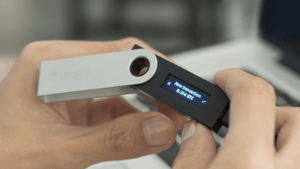 A hardware wallet is a device, most look like typical USBs, that keeps your Bitcoin private keys safe and offline.
A hardware wallet is a device, most look like typical USBs, that keeps your Bitcoin private keys safe and offline. Online wallets refer to Bitcoin storages maintained by third parties and ones that are easily accessible over the internet.
Online wallets refer to Bitcoin storages maintained by third parties and ones that are easily accessible over the internet.
 Bitcoin wallets both hot and cold make this possible by providing a safe haven for your Bitcoins.
Bitcoin wallets both hot and cold make this possible by providing a safe haven for your Bitcoins.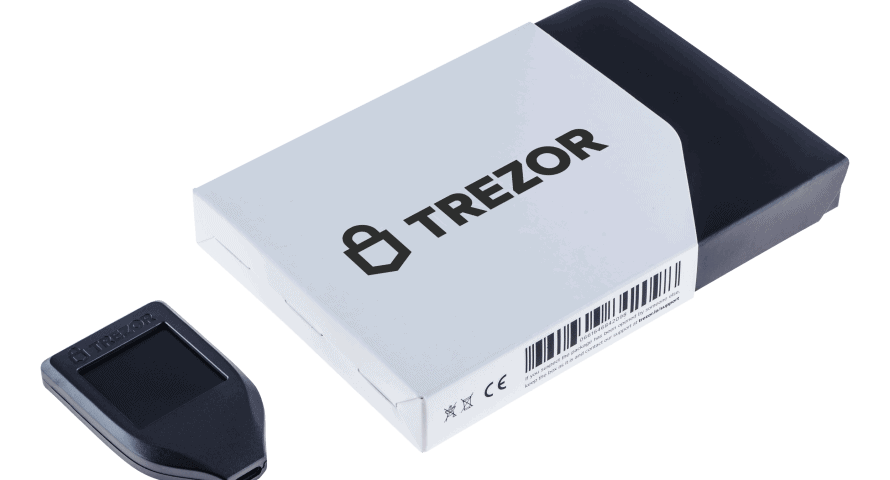
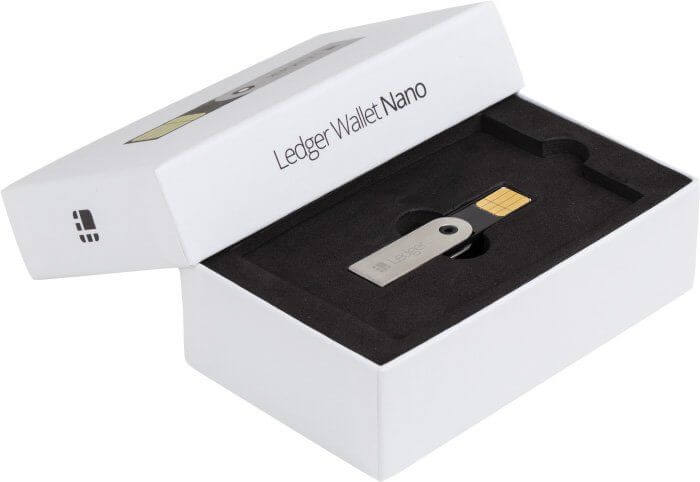
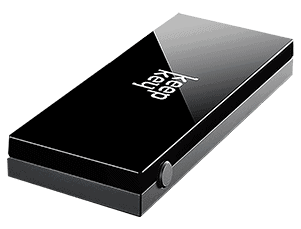
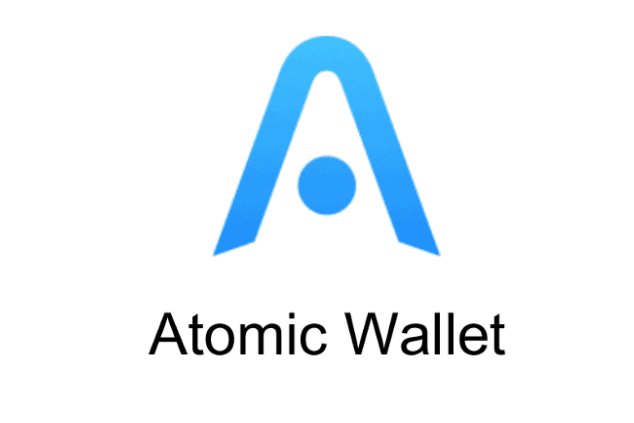
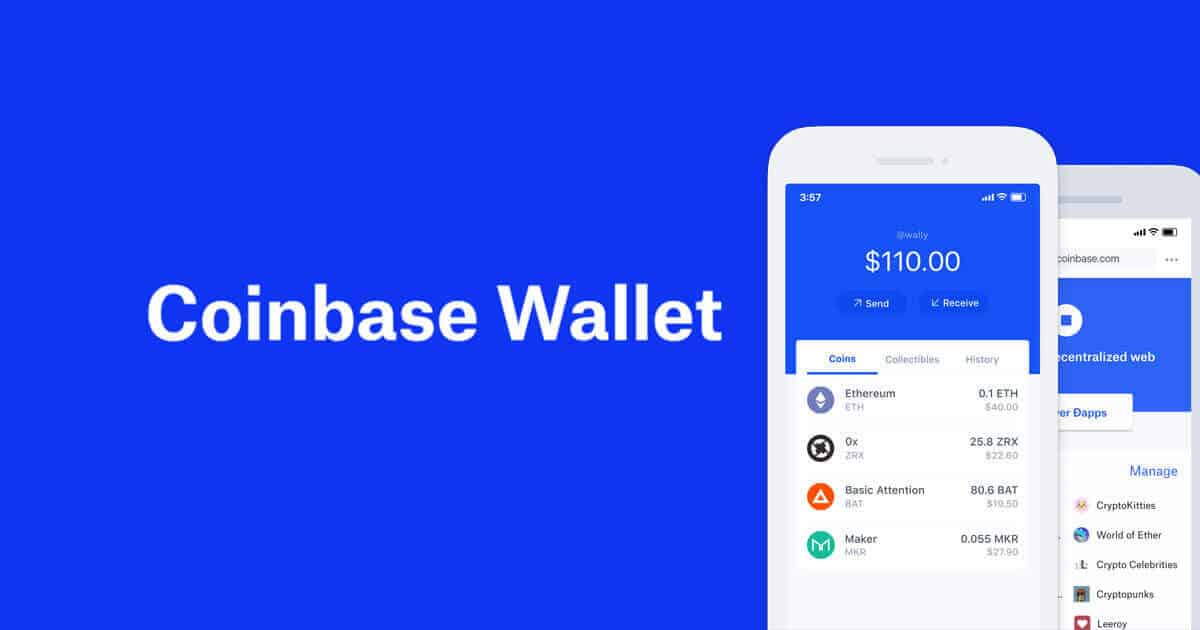
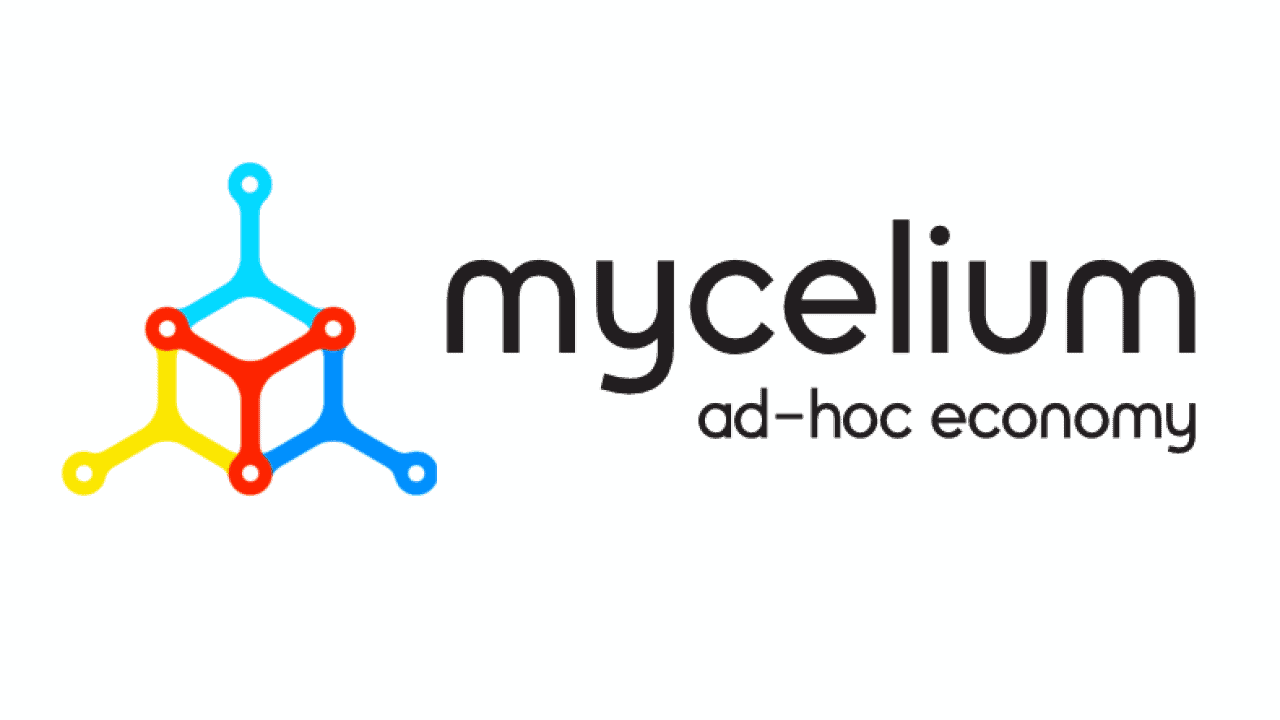
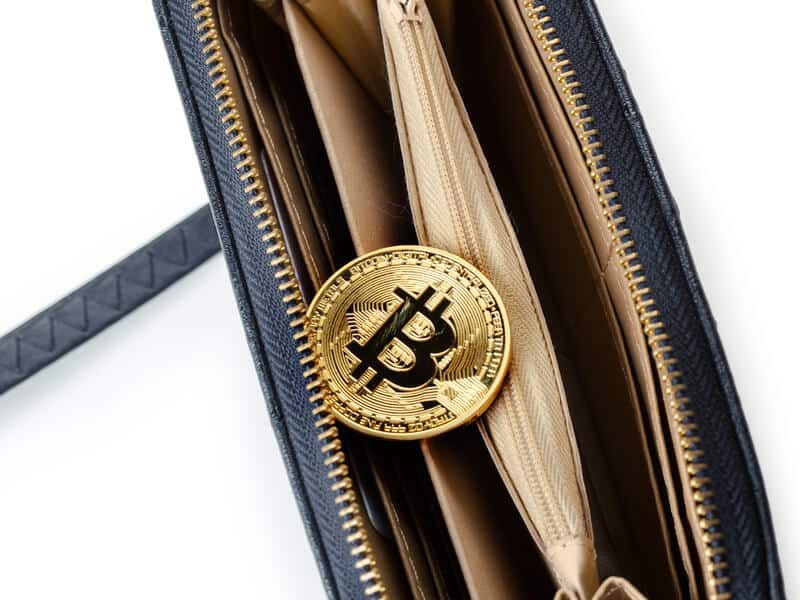 Bitcoin wallet by going through their code audit reports and other security analysis carried out by industry leaders. Even more importantly, consider maintaining backups and breaking your investment and saving it in different wallets.
Bitcoin wallet by going through their code audit reports and other security analysis carried out by industry leaders. Even more importantly, consider maintaining backups and breaking your investment and saving it in different wallets.